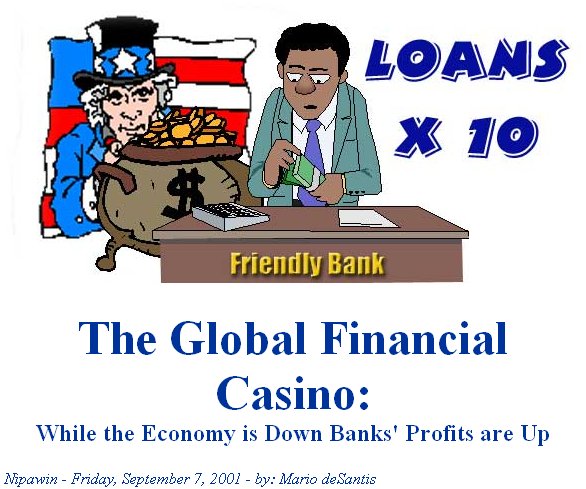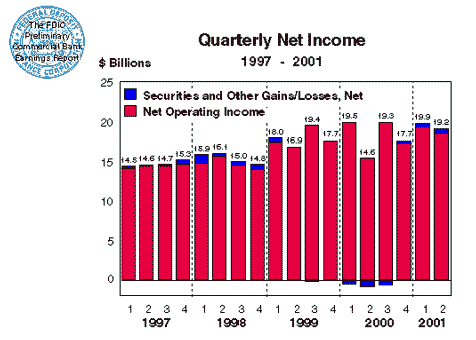Learning Stories
by
Mario deSantis
mariodesantis@hotmail.com
“I am a Canadian, free to speak without fear, free to worship in my own way, free to stand for what I think right, free to oppose what I believe wrong, and free to choose those who shall govern my country.” - -The Rt. Hon. John Diefenbaker, Canadian Bill of Rights, 1960
“The whole judicial system is at issue, it's worth more than one person.”--Serge Kujawa, Saskatchewan Crown Prosecutor, 1991
“The system is not more worth than one person's rights.”--Mario deSantis, 2002
Ensign Stories © Mario deSantis and Ensign
|
|
Stock market analysts, conventional economists, and financial analysts all support the globalized economic gambling casino and whenever there is a down turn in the economy they blame the imperfection of the market due to governmental interventions and they all hope for an early recovery by not mentioning the word R for recession. To make things more complicated we have governments siding with corporations rather than with their citizens. One reality of our economic system and therefore of our present economic downturn is that our money is de-linked with the exchange of goods and services, and therefore money is used for speculative purposes. As money is used for speculative purposes, we have businesses making money with money. One example is the banking system.
Today I came to know that while the economy is on the verge of a recession, the US banking industry has had the most profitable first six months even though "they wrote off US$8-billion in bad loans during the second quarter this year, up 50% from a year ago." How did it happen? Economist David Korten says "the way in which the banking system creates money by pyramiding debt is familiar to anyone who has taken an elementary economics course." Korten explains that with an original purchase of $1,000 bond by the Federal Reserve, the banking system is able to generate $9,000 in new deposits by issuing $9,000 in new loans (assuming a 10% reserve requirement by the banks). Therefore, "the total of $1,000 in new money interjected into the banking system by the Federal Reserve is thus pyramided into $10,000 in new money, of which $9,000 is in loans on which the banks involved expect to receive the going rate of interest, let us say 8%. This means that the banking system expect to obtain a minimum annual interest return of $720 on $9,000." Now think about this paradox: as the Federal Reserve reduces its interest rate, loans become easier and the banks will make more money! References Related social and economic articles published by Ensign Productivity gains give hope for U.S. turnaround. Worker output climbs 2.1% in second quarter. Peter Morton, Financial Post, September 6, 2001 http://www.nationalpost.com/home/story.html?f=/stories/20010906/686030.html When Corporations Rule the World, by David C. Korten, 2nd Edition 2001, Chapter 13 "The Money Game," page 182 http://iisd1.iisd.ca/pcdf/corprule/corporat.htm Quarterly Net Income & Quarterly Net Interest Margins, Annualized 1997-2001, Federal Deposit Insurance Corporation http://www.fdic.gov/news/news/press/2001/pr6101g.html
|

